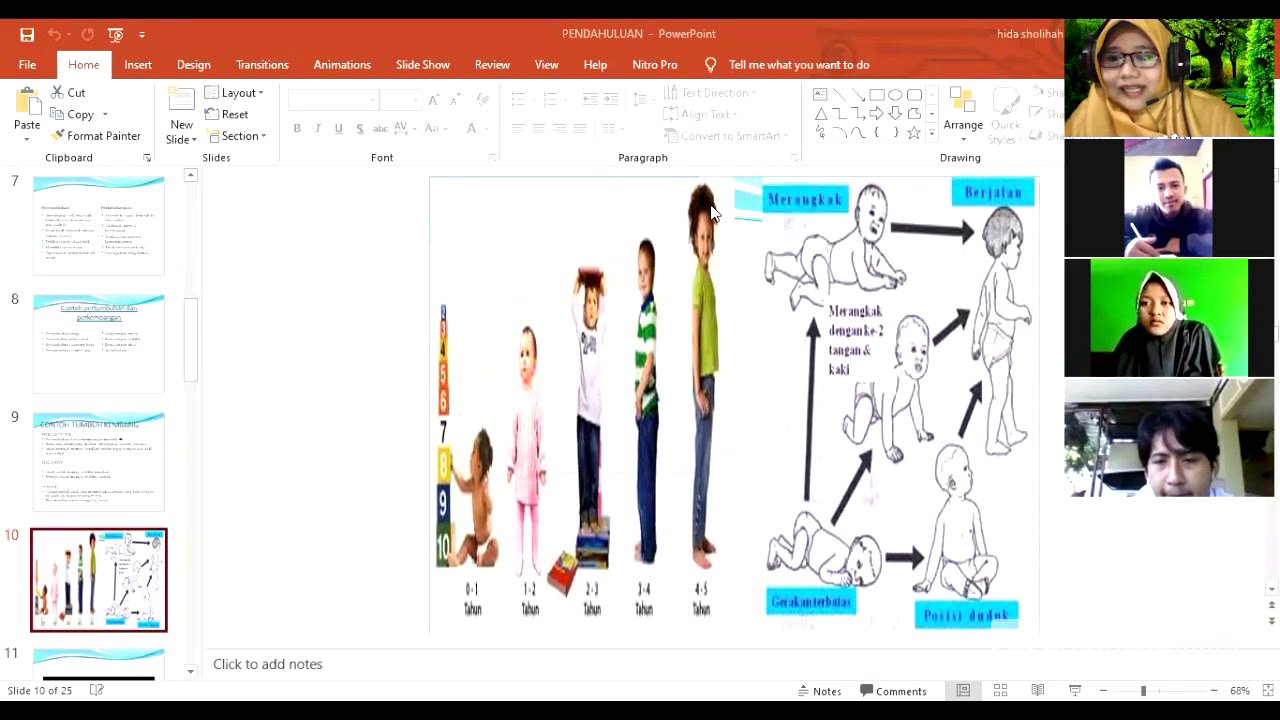TLDR;
This video discusses developmental psychology, focusing on the differences between growth and development, developmental tasks throughout the lifespan, and factors influencing development. It emphasizes understanding students' psychology based on their development stages and provides insights into living a healthy, long life. The lecture also addresses questions about adulthood, the influence of teachers in early childhood education, and the impact of early reading and writing instruction.
- Growth vs. Development
- Developmental Tasks
- Factors Influencing Development
- Early Childhood Education
Introduction and Course Adjustment [0:00]
The instructor begins by expressing empathy for the students and announces a change to the course contract, reducing the number of Zoom sessions and shortening the duration of each session to save students' credit hours. The goal is to make the sessions more effective and communicative, focusing on building students' writing skills for paper writing.
Overview of Developmental Psychology [1:55]
The lecture introduces developmental psychology, highlighting its importance in understanding students' psychology according to their developmental stages. The next 20 minutes will cover key topics, and students are encouraged to provide comments or questions after the presentation.
Growth vs. Development: Definitions and Differences [3:48]
The session defines growth as an irreversible increase in size, volume, weight, and number of cells. Development, on the other hand, is defined as a series of progressive changes towards a more mature state, influenced by maturity and experience. Growth is quantitative and visible, while development is qualitative and not always immediately observable. Development involves the quality of physical organ functions and includes both physical and psychological aspects.
Examples and Factors Influencing Development [13:00]
The lecture uses visual examples to illustrate the differences between growth and development. Factors influencing development include environmental conditions, nutrition, water, health, education, and physical exercise.
Developmental Tasks Across the Lifespan [14:21]
Developmental tasks are stages of growth and development that individuals must achieve at different ages. Examples include learning to eat solid food in infancy, acquiring physical skills in childhood, and accepting physical conditions in adolescence. The lecture emphasizes that failing to meet these tasks at the appropriate time can hinder development.
Developmental Tasks in Childhood and Adolescence [18:52]
During childhood, developmental tasks include learning physical skills, adapting to peers, and developing reading, writing, and arithmetic abilities. Adolescence involves accepting physical changes and achieving responsible social behavior. Teenagers should be confident and accept their physical appearance, resisting negative stereotypes from media and advertisements.
Developmental Tasks in Adulthood and Old Age [24:57]
In early adulthood, tasks include choosing a partner, building a family, and taking responsibility as a citizen. Middle age involves reaching the peak of one's career and adapting to changing family dynamics. Old age requires adapting to declining physical strength and health, retirement, reduced income, and the loss of partners.
Q&A: Defining Adulthood and the Role of Male Teachers in Early Childhood Education [30:37]
The session addresses questions from students, including a comprehensive definition of adulthood, which includes not only age but also the ability to take responsibility and be independent. The discussion also covers the influence of predominantly female teachers in early childhood education, noting that while women are naturally nurturing, a balance of male and female figures is ideal for children's development.
Calistung (Reading, Writing, Arithmetic) and Early Childhood Education [48:20]
The lecture explores the debate around teaching calistung (reading, writing, arithmetic) in early childhood. It highlights that while some parents and teachers push for early instruction, psychological perspectives suggest that learning through play and providing rich experiences are more beneficial for brain development during the golden age (0-5 years). The instructor shares personal experiences and emphasizes the importance of building interest in reading and writing through example rather than forced instruction.
Balancing Ideal Practices with Real-World Conditions [1:01:12]
The discussion addresses the dilemma of balancing ideal educational practices with real-world conditions, where pressures from parents and schools often lead to early calistung instruction. The instructor suggests a transition period before elementary school to teach these skills in a fun, engaging way, using symbols and pictures rather than rote memorization. The session concludes by acknowledging the importance of understanding developmental psychology to make informed decisions about children's education and well-being.









